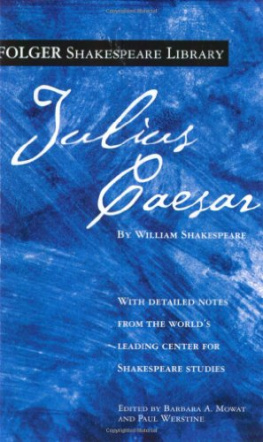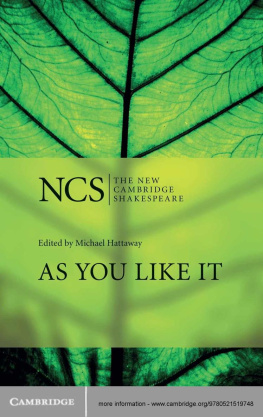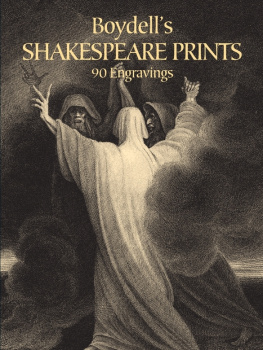William Shakespeare - Shakespeare Poems
Here you can read online William Shakespeare - Shakespeare Poems full text of the book (entire story) in english for free. Download pdf and epub, get meaning, cover and reviews about this ebook. year: 2012, publisher: Alfred A. Knopf, genre: Science. Description of the work, (preface) as well as reviews are available. Best literature library LitArk.com created for fans of good reading and offers a wide selection of genres:
Romance novel
Science fiction
Adventure
Detective
Science
History
Home and family
Prose
Art
Politics
Computer
Non-fiction
Religion
Business
Children
Humor
Choose a favorite category and find really read worthwhile books. Enjoy immersion in the world of imagination, feel the emotions of the characters or learn something new for yourself, make an fascinating discovery.

- Book:Shakespeare Poems
- Author:
- Publisher:Alfred A. Knopf
- Genre:
- Year:2012
- Rating:4 / 5
- Favourites:Add to favourites
- Your mark:
- 80
- 1
- 2
- 3
- 4
- 5
Shakespeare Poems: summary, description and annotation
We offer to read an annotation, description, summary or preface (depends on what the author of the book "Shakespeare Poems" wrote himself). If you haven't found the necessary information about the book — write in the comments, we will try to find it.
Shakespeare Poems — read online for free the complete book (whole text) full work
Below is the text of the book, divided by pages. System saving the place of the last page read, allows you to conveniently read the book "Shakespeare Poems" online for free, without having to search again every time where you left off. Put a bookmark, and you can go to the page where you finished reading at any time.
Font size:
Interval:
Bookmark:
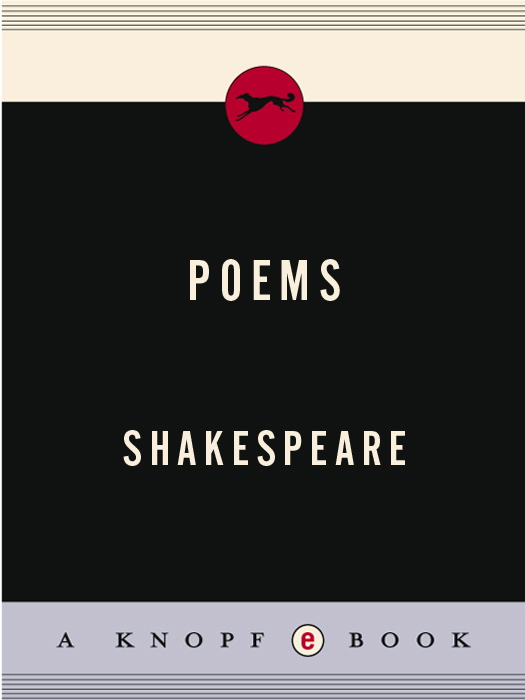
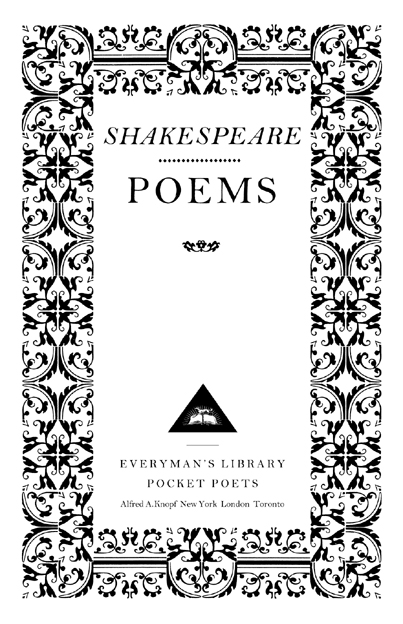
PUBLISHED BY ALFRED A. KNOPF This selection by Graham Handley first published in
Everymans Library, 1994
Copyright 1994 by Everymans Library
Eighth printing (US) All rights reserved under International and Pan-American Copyright Conventions. Published in the United States by Alfred A. Knopf, a division of Random House, Inc., New York, and simultaneously in Canada by Random House of Canada Limited, Toronto. Distributed by Random House, Inc., New York. Published in the United Kingdom by Everymans Library, Northburgh House, 10 Northburgh Street, London EC1V 0AT.
Distributed by Random House (UK) Ltd. US website: www.randomhouse.com/everymans A CIP catalogue record for this book is available from the British Library Library of Congress Cataloging-in-Publication Data Shakespeare, William, 15641616. [Poems} Poems/William Shakespeare p. cm.(Everymans library pocket poets) Includes bibliographical references. eISBN: 978-0-307-96158-7 I. II. Series. Series.
PR2841 1994 94-2494
821.3dc20 v3.1
Look in thy glass and tell the face thou viewest Now is the time that face should form another, Whose fresh repair if now thou not renewest, Thou dost beguile the world, unbless some mother. For where is she so fair whose uneared womb Disdains the tillage of thy husbandry? Or who is he so fond will be the tomb Of his self-love to stop posterity? Thou art thy mothers glass, and she in thee Calls back the lovely April of her prime; So thou through windows of thine age shalt see, Despite of wrinkles, this thy golden time. But if thou live remembred not to be, Die single and thine image dies with thee. Unthrifty loveliness, why dost thou spend Upon thyself thy beautys legacy? Natures bequest gives nothing but doth lend, And being frank she lends to those are free. Then, beauteous niggard, why dost thou abuse The bounteous largess given thee to give? Profitless usurer, why dost thou use So great a sum of sums yet canst not live? For having traffic with thyself alone, Thou of thyself thy sweet self dost deceive. Then how when Nature calls thee to be gone, What acceptable audit canst thou leave? Thy unused beauty must be tombed with thee, Which, usd, lives th executor to be.
Those hours that with gentle work did frame The lovely gaze where every eye doth dwell Will play the tyrants to the very same And that unfair which fairly doth excel; For never-resting Time leads summer on To hideous winter and confounds him there, Sap checked with frost and lusty leaves quite gone, Beauty oersnowed and bareness everywhere. Then, were not summers distillation left A liquid prisoner pent in walls of glass, Beautys effect with beauty were bereft, Nor it nor no remembrance what it was. But flowers distilled though they with winter meet, Leese but their show, their substance still lives sweet. Then let not winters ragged hand deface In thee thy summer ere thou be distilled. Make sweet some vial; treasure thou some place With beautys treasure ere it be self-killed. That use is not forbidden usury Which happies those that pay the willing loan; Thats for thyself to breed another thee, Or ten times happier be it ten for one.
Ten times thyself were happier than thou art, If ten of thine ten times refigured thee: Then what could death do if thou shouldst depart, Leaving thee living in posterity? Be not self-willed, for thou art much too fair, To be deaths conquest and make worms thine heir. Lo, in the orient when the gracious light Lifts up his burning head, each under eye Doth homage to his new-appearing sight, Serving with looks his sacred majesty; And having climbed the steep-up heavenly hill, Resembling strong youth in his middle age, Yet mortal looks adore his beauty still, Attending on his golden pilgrimage; But when from highmost pitch, with weary car, Like feeble age he reeleth from the day, The eyes, fore duteous, now converted are From his low tract and look another way: So thou, thyself outgoing in thy noon, Unlooked on diest unless thou get a son. Music to hear, why hearst thou music sadly? Sweets with sweets war not, joy delights in joy. Why lovst thou that which thou receivst not gladly, Or else receivst with pleasure thine annoy? If the true concord of well tund sounds, By unions married, do offend thine ear, They do but sweetly chide thee, who confounds In singleness the parts that thou shouldst bear. Mark how one string, sweet husband to another, Strikes each in each by mutual ordering; Resembling sire, and child, and happy mother, Who all in one, one pleasing note do sing; Whose speechless song, being many, seeming one, Sings this to thee, Thou single wilt prove none. Is it for fear to wet a widows eye That thou consumst thyself in single life? Ah, if thou issueless shalt hap to die, The world will wail thee like a makeless wife; The world will be thy widow and still weep, That thou no form of thee hast left behind, When every private widow well may keep, By childrens eyes, her husbands shape in mind.
Look what an unthrift in the world doth spend, Shifts but his place, for still the world enjoys it; But beautys waste hath in the world an end, And kept unused, the user so destroys it: No love toward others in that bosom sits That on himself such murdrous shame commits. For shame, deny that thou bearst love to any Who for thyself art so unprovident. Grant if thou wilt, thou art beloved of many, But that thou none lovst is most evident; For thou art so possessed with murdrous hate, That gainst thyself thou stickst not to conspire, Seeking that beauteous roof to ruinate, Which to repair should be thy chief desire. O, change thy thought, that I may change my mind. Shall hate be fairer lodged than gentle love? Be as thy presence is, gracious and kind, Or to thyself at least kind-hearted prove. Make thee another self for love of me, That beauty still may live in thine or thee.
As fast as thou shalt wane, so fast thou growst In one of thine, from that which thou departest; And that fresh blood which youngly thou bestowst Thou mayst call thine, when thou from youth convertest. Herein lives wisdom, beauty, and increase; Without this, folly, age, and cold decay. If all were minded so, the times should cease, And threescore year would make the world away. Let those whom Nature hath not made for store, Harsh, featureless, and rude, barrenly perish. Look whom she best endowed, she gave the more; Which bounteous gift thou shouldst in bounty cherish. She carved thee for her seal, and meant thereby Thou shouldst print more, not let that copy die.
Font size:
Interval:
Bookmark:
Similar books «Shakespeare Poems»
Look at similar books to Shakespeare Poems. We have selected literature similar in name and meaning in the hope of providing readers with more options to find new, interesting, not yet read works.
Discussion, reviews of the book Shakespeare Poems and just readers' own opinions. Leave your comments, write what you think about the work, its meaning or the main characters. Specify what exactly you liked and what you didn't like, and why you think so.



